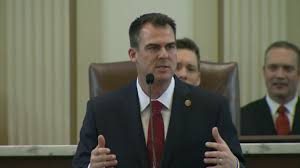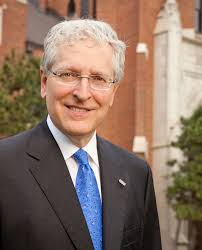
Scattered throughout Oklahoma’s energy fields of oil wells, wind and solar farms and transmission lines are dozens and dozens of Indian tribal casinos. And they are the source of the fight between the tribes and Oklahoma Gov. Kevin Stitt—a fight that now has gone to federal court.
Hours before the start of 2020, the Cherokee, Chickasaw and Choctaw nations filed suit against Gov. Stitt asking a judge to determine that the state’s Model Tribal Gaming compact automatically renewed on Jan. 1. While workers from the various energy industries visit those casinos to try their hand at the slots or a round of poker, the case ( 5:19-CV-01198-D)will not be quickly decided. A lot of fortunes could be won and lost before U.S. District Judge Timothy D. DeGiusti makes a final determination.
“Gov. Stitt has made comments about ‘uncertainty that exists’ regarding Class III gaming after Jan. 1, threats to our casino vendors and their livelihoods and demands for redundant audits,” Cherokee Nation Principal Chief Chuck Hoskin Jr. said in a press release. “We have little choice but to ask a federal judge to confirm the compact’s automatic renewal on Jan. 1.”

The political website Non Doc reported that Hoskin was one of more than 50 tribal leaders who appeared at a Dec. 19 press conference at the River Spirit Casino and Resort in Tulsa to reject Stitt’s offer of a temporary gaming compact extension. Stitt formally requested renegotiation of the compact this summer and has argued that his action prevents automatic renewal. Tribal leaders, on the other hand, say action taken by the Oklahoma Horse Racing Commission triggered automatic renewal regardless of Stitt’s request to renegotiate.
The language in dispute appears as Part 15 B of the compact, which reads:
This Compact shall have a term which will expire on January 1, 2020, and at that time, if organization licensees or others are authorized to conduct electronic gaming in any form other than pari-mutuel wagering on live horse racing pursuant to any governmental action of the state or court order following the effective date of this Compact, the Compact shall automatically renew for successive additional fifteen-year terms; provided that, within one hundred eighty (180) days of the expiration of this Compact or any renewal thereof, either the tribe or the state, acting through its Governor, may request to renegotiate the terms of subsections A and E of Part 11 of this Compact.
Stitt contends that Class III gaming — which includes table games and traditional slot machines — will become illegal at the stroke of midnight without a new compact in place. Tribes have maintained that business will continue as usual within their casinos.
“The Tribes remain firmly united on the automatic renewal of the compacts. We have communicated our position to Gov. Stitt on numerous occasions in hopes of finding a practical path forward benefitting both the state and tribes,” said Matthew Morgan, Oklahoma Indian Gaming Association chairman and head of gaming for the Chickasaw Nation, in a press release. “That said, as leaders of sovereign nations, the Tribal leaders must honor the compacts and will continue to do so on Jan. 1, 2020, as they’ve done the past 15 years. Tribal leaders have the right as well as the responsibility to protect their citizens. Tribal leaders applaud the action taken today by the Cherokee, Choctaw and Chickasaw nations to seek certainty on the matter of automatic renew through the federal court.”
Stitt ‘disappointed’ that tribes chose lawsuit over arbitration
Just after 3 p.m. Tuesday, Stitt’s team responded to the three tribes’ lawsuit and announced that two other tribes had signed the governor’s proposed eight-month compact extension.
“I am disappointed that a number of Oklahoma tribes, led by the Chickasaw, Cherokee and Choctaw nations, did not accept the state’s offer on Oct. 28 for a three-person arbitration panel to resolve our dispute outside of court,” Stitt said in a press release. “This was a capstone action to their numerous refusals to meet with the state and begin negotiations on the Model Gaming Compact to ensure a win-win for all parties by the end of this year. I was elected to represent all 4 million Oklahomans, and I will continue to be laser-focused on an outcome that achieves a fair deal and is in the best interest of the state and its citizens.”
In the same release, Stitt announced that the Kialegee Tribal Town and the United Keetoowah Band of Cherokee Indians both signed the eight-month gaming compact extension he has pitched to all compacted tribes in the state.

One of those representing the Chickasaw Nation in the lawsuit is Robert Henry, former U.S. 10th Circuit Court of Appeals judge and former Oklahoma Attorney General.
Source: Non Doc and The McCarville Report and federal courts





